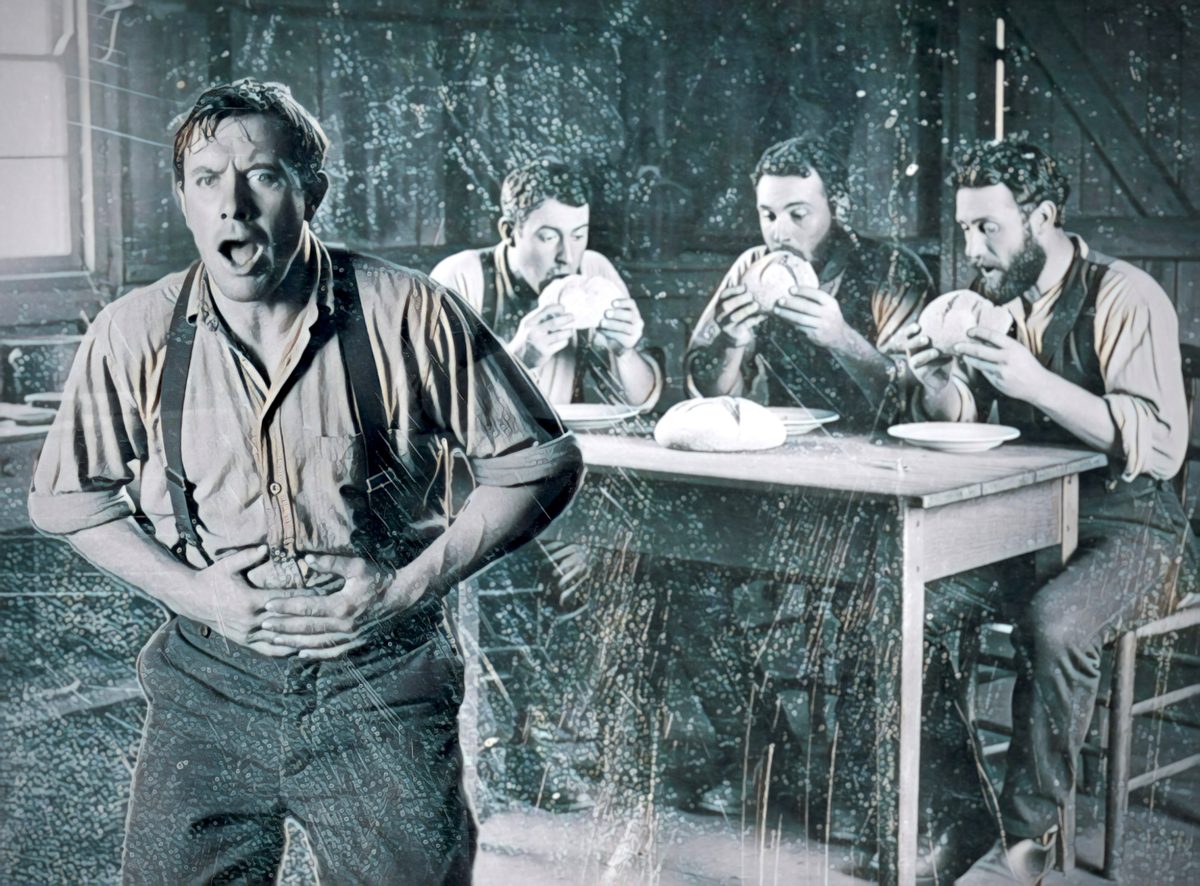
The decision to add a mystery bag of powder to the flour bin had fatal consequences on Bundure Station in 1865. Photo: Created using AI.
In the winter of 1865, a Riverina station storekeeper found a small, unmarked parcel of white powder among his latest order of provisions. His decision to add it to the flour bin was to prove deadly.
Today, household toxins are carefully controlled and labelled and the use of poison to punish dinner guests is a rare enough occurrence that the recent ”death cap mushroom murders” in Victoria generated global headlines. But back in the 19th century, the use of poisons such as arsenic was so widespread and so poorly regulated that there are thousands of accounts of “accidental poisoning” in the newspapers of the day.
On 3 August, 1865, William Merson was acting as storekeeper at the sprawling Bundure Station south of Narranderra. As he checked the rations against a list of stores provided by the superintendent, John Lewis, an unlisted paper parcel caught his attention.
According to accounts from the subsequent coronial inquest, Merson and another man, named Burns, opened the package and examined the powdered contents.
“Looks like soda,” Burns guessed. “No, it’s flour,” asserted Merson before carelessly tipping it into the flour bin.
He would later admit that he had been distracted by the discovery of fresh cat poo on his desk.
What came next was reported by The Yass Courier’s correspondent in Wagga Wagga on 16 August.
“Dreadful rumours have reached town this week, concerning a case of wholesale poisoning on the Yanco. Our information is vague, but doubtless contains too much of truthfulness,” they warned, outlining the fatal decision to pour several pounds of arsenic into the flour that was then turned into damper.
“Some of the flour containing the deadly infusion was served out to men employed on the station and was eaten by some twelve or fifteen persons. It was said that one man died shortly after partaking of it, and others were in a dangerous state.”
As it awaited further confirmation, the newspaper questioned how such an accident could have happened.
“It is very strange that so much or any poison should have been left in the store unlabeled. It betrays gross negligence on somebody’s part.”
Subsequent reports published widely across the nation suggested that between four and seven men had died before it was finally confirmed that, of the 10 men to eat the toxic damper, Michael McCabe had been the sole fatality.
In September, The Tumut and Adelong Times reported that the coroner had confirmed that McCabe “came by his death at the sheepwash at Bundure on the 3rd August, 1865, from the effects of arsenic mixed with flour, issued to him for rations from the Bundure store”.
Merson and station manager John Lewis were charged with manslaughter for “feloniously killing and slaying Michael M’Cabe”. Merson was cited for “issuing the said flour containing an article of which he was not thoroughly acquainted” and Lewis for “not instructing W. F. Meeson [Merson] of the presence of arsenic in the store and of not causing proper precautions to be taken for the custody of the said arsenic”.
The pair fronted court in Deniliquin the following February and among the various witness testimonies, it was established that the poison was not listed among the provisions, nor was it labelled in any way.
It was also demonstrated via an equal-sized pair of parcels that arsenic is considerably heavier than flour in proportion to its bulk and it should not have been so easily mistaken.
In summing up, the judge asked: “What right had Merson to rush to the conclusion that it was flour … nobody told him it was poison; nobody told him it was flour. He had no right to suppose it was either one or the other.” He also questioned who should have been responsible for properly labelling the poison.
Ultimately, the jury concluded that both men had acted without malice and returned a verdict of not guilty.
Melbourne’s Leader newspaper concluded that “his Honor – whilst fully agreeing with the verdict, expressed the hope that more care would in future be exercised in the use of poisons, and suggested they should be kept in bottles”.
Mr Lewis and Mr Merson left the court “without any stain on their characters”.







